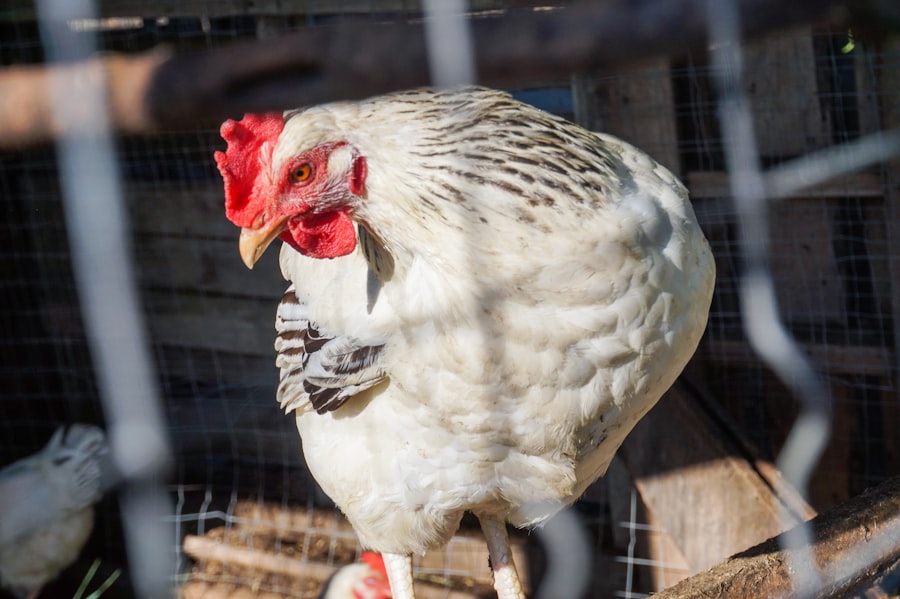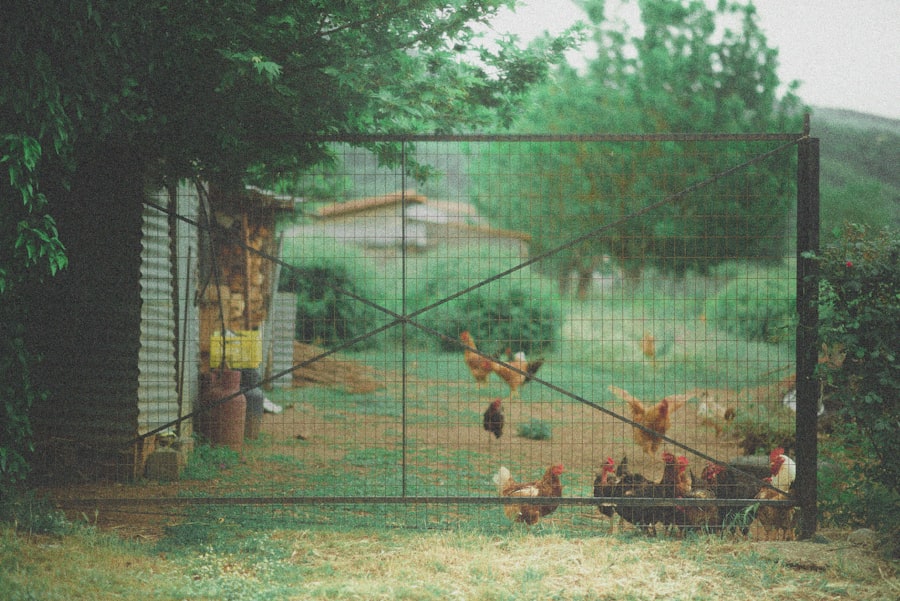Protecting chickens from predators requires a comprehensive understanding of the potential threats they face. Various animals pose risks to chicken flocks, including foxes, raccoons, coyotes, and domestic cats. These predators are often drawn to chicken coops due to the prospect of an easily accessible food source.
To effectively safeguard chickens, it is essential to implement proactive measures based on knowledge of predator behavior and habits. Predator attacks can occur at any time, day or night, necessitating constant vigilance and preparedness. By thoroughly assessing the risks and potential dangers to chickens, flock owners can develop and implement appropriate security measures to ensure the safety and well-being of their birds.
This approach involves a combination of physical barriers, deterrents, and management practices tailored to address specific predator threats in the local environment.
Table of Contents
- 1 Creating Physical Barriers
- 2 Using Natural Deterrents
- 3 Implementing Sound and Motion
- 4 Providing Safe Spaces for Chickens
- 5 Training Cats to Stay Away
- 6 Seeking Professional Help
- 7 FAQs
- 7.1 What are some effective methods for keeping cats away from backyard chickens?
- 7.2 Why is it important to keep cats away from backyard chickens?
- 7.3 Are there any natural deterrents that can be used to keep cats away from backyard chickens?
- 7.4 What are some signs that cats may be targeting backyard chickens?
- 7.5 Are there any humane methods for keeping cats away from backyard chickens?
Key Takeaways
- Understanding the Risk: Predators such as foxes, raccoons, and hawks pose a threat to chickens and their eggs, especially in rural areas.
- Creating Physical Barriers: Install sturdy fencing and hardware cloth to keep predators out of the chicken coop and run.
- Using Natural Deterrents: Planting thorny bushes and using strong-smelling herbs can help deter predators from approaching the coop.
- Implementing Sound and Motion: Utilize motion-activated lights, sprinklers, and even radios to startle and deter predators from the chicken area.
- Providing Safe Spaces for Chickens: Create hiding spots and shelters within the coop and run for chickens to escape from predators.
- Training Cats to Stay Away: Use deterrents such as citrus scents and motion-activated devices to discourage cats from approaching the chicken coop.
- Seeking Professional Help: Consult with local wildlife experts or pest control professionals for advice on dealing with persistent predator issues.
Creating Physical Barriers
Creating Physical Barriers
One of the most effective ways to safeguard your chickens from predators is by establishing physical barriers around their coop and run. This can be achieved by installing sturdy fencing that is buried at least a foot into the ground to prevent predators from digging underneath. Additionally, adding a roof or cover to the chicken run can help deter aerial predators such as hawks and owls.
Securing the Coop
It’s also crucial to ensure that the coop itself is secure, with strong locks on doors and windows to prevent predators from gaining access. Regularly inspecting the fencing and coop for any signs of wear or damage is essential in maintaining the integrity of these physical barriers.
Maintaining a Safe Environment
By creating strong and secure physical barriers, you can significantly reduce the risk of predators gaining access to your chickens. This proactive approach will provide a safe and secure environment for your chickens to thrive.
Using Natural Deterrents

In addition to physical barriers, natural deterrents can also be effective in keeping predators away from your chickens. One common natural deterrent is the use of predator urine or scent markers, which can be strategically placed around the perimeter of the coop and run to create a barrier that predators are less likely to cross. Additionally, planting thorny bushes or shrubs around the perimeter can create a natural barrier that deters predators from getting too close.
Another natural deterrent is the presence of guard animals such as dogs or geese, which can help protect the chickens by alerting you to potential threats and even warding off predators with their presence. By using natural deterrents in conjunction with physical barriers, you can create a multi-layered defense system that significantly reduces the risk of predators harming your chickens.
Implementing Sound and Motion
Predators are often deterred by unexpected sounds and movements, making sound and motion devices an effective tool in protecting your chickens. Motion-activated lights and alarms can startle predators and drive them away from the coop and run. Additionally, placing wind chimes or other noise-making devices around the perimeter can create a deterrent that makes predators think twice before approaching.
Another effective method is using scarecrows or other motion-activated decoys that mimic the presence of a larger predator, such as a coyote or owl. These decoys can create the illusion of danger and deter predators from approaching the area. By implementing sound and motion devices, you can add an extra layer of protection for your chickens and reduce the risk of predator attacks.
Providing Safe Spaces for Chickens
Creating safe spaces within the coop and run is essential in protecting your chickens from potential predator attacks. This can include providing hiding spots such as dense shrubbery or small shelters within the run where chickens can seek refuge if they sense danger. Additionally, ensuring that the coop itself is secure and provides ample space for all of the chickens to roost comfortably at night is crucial in keeping them safe.
It’s also important to regularly clean and maintain the coop and run to remove any potential hiding spots for predators, such as tall grass or debris that could provide cover for them. By providing safe spaces for your chickens within their living environment, you can help reduce their vulnerability to predator attacks.
Training Cats to Stay Away

Using Scent Deterrents
If neighborhood cats are posing a threat to your chickens, it’s essential to take proactive measures to keep them away from the coop and run. One effective method is to use scent deterrents such as citrus peels or coffee grounds around the perimeter of the coop. Cats are known to dislike these scents and will be less likely to approach.
Providing Alternative Sources of Food and Shelter
Additionally, providing alternative sources of food and shelter for neighborhood cats can help reduce their interest in your chickens. By offering a designated feeding area and shelter for cats away from the coop and run, you can help redirect their attention and reduce the risk of them preying on your chickens.
Redirecting Attention and Reducing Risk
By implementing these measures, you can create a safer environment for your chickens and reduce the threat posed by neighborhood cats. By redirecting their attention to alternative sources of food and shelter, you can minimize the risk of predation and protect your flock.
Seeking Professional Help
In some cases, despite your best efforts, predators may continue to pose a threat to your chickens. In these situations, seeking professional help from a wildlife control expert or animal behaviorist may be necessary. These professionals can assess the situation and provide tailored solutions for protecting your chickens from specific predators.
Wildlife control experts can help identify potential entry points for predators and implement effective trapping or exclusion methods to keep them at bay. Additionally, an animal behaviorist can provide insights into predator behavior and offer strategies for deterring them from targeting your chickens. By seeking professional help, you can gain valuable expertise and support in protecting your chickens from predators, ultimately ensuring their safety and well-being.
If you’re looking for tips on how to keep your backyard chickens safe from curious cats, you might also be interested in learning how to build a secure chicken coop and run. Check out this article for some helpful plans and ideas on creating a safe and comfortable space for your feathered friends.
FAQs
What are some effective methods for keeping cats away from backyard chickens?
Some effective methods for keeping cats away from backyard chickens include using motion-activated sprinklers, creating physical barriers such as fences or chicken wire, using scent deterrents like citrus or lavender, and providing a safe and elevated roosting area for the chickens.
Why is it important to keep cats away from backyard chickens?
It is important to keep cats away from backyard chickens to protect the chickens from potential harm or stress caused by predatory behavior. Cats are natural hunters and may pose a threat to the safety and well-being of backyard chickens.
Are there any natural deterrents that can be used to keep cats away from backyard chickens?
Yes, there are natural deterrents that can be used to keep cats away from backyard chickens. These include planting cat-repelling plants such as rue or coleus, using citrus peels or essential oils, and creating noise or motion disturbances to deter cats from the area.
What are some signs that cats may be targeting backyard chickens?
Some signs that cats may be targeting backyard chickens include finding feathers or signs of disturbance in the chicken coop or yard, observing cats lurking around the chicken coop, or noticing any injuries or stress in the chickens.
Are there any humane methods for keeping cats away from backyard chickens?
Yes, there are humane methods for keeping cats away from backyard chickens. These include using deterrents that do not cause harm to the cats, such as scent-based repellents, motion-activated devices, or providing alternative areas for cats to roam and hunt.
Meet Walter, the feathered-friend fanatic of Florida! Nestled in the sunshine state, Walter struts through life with his feathered companions, clucking his way to happiness. With a coop that’s fancier than a five-star hotel, he’s the Don Juan of the chicken world. When he’s not teaching his hens to do the cha-cha, you’ll find him in a heated debate with his prized rooster, Sir Clucks-a-Lot. Walter’s poultry passion is no yolk; he’s the sunny-side-up guy you never knew you needed in your flock of friends!







